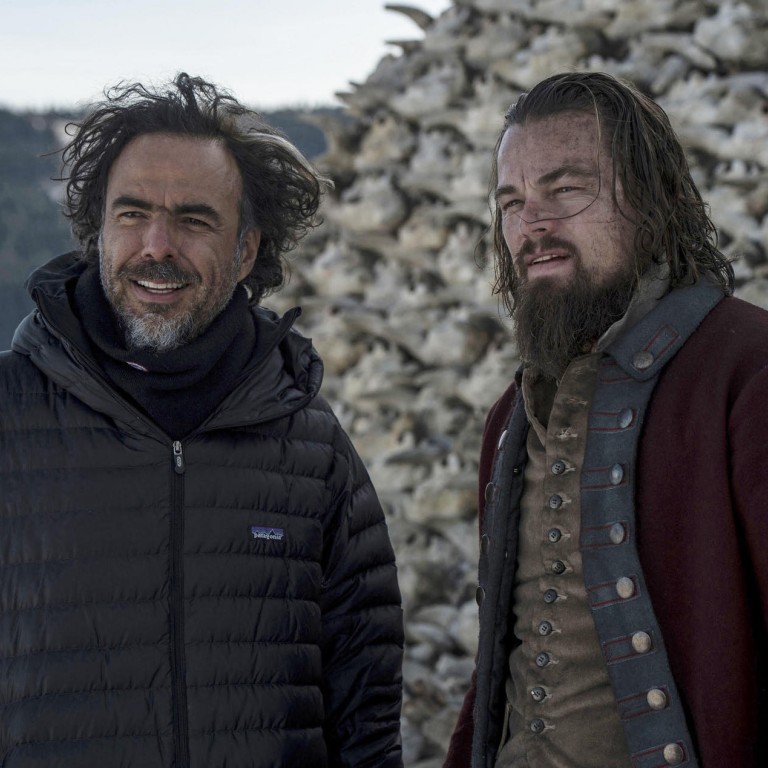Oscar-winning director Alejandro González Iñárritu pits man against nature in 'The Revenant'

What does it take to make Oscar-winning films? One prime candidate to answer that is Mexican-born director Alejandro González Iñárritu, whose expertise is proved by the four Academy Awards that he has bagged – one for The Revenant and three for Birdman, including consecutive Best Director awards.
What does it take to make Oscar-winning films? One prime candidate to answer that is Mexican-born director Alejandro González Iñárritu, whose expertise is proved by the four Academy Awards that he has bagged – one for The Revenant and three for Birdman, including consecutive Best Director awards. Of course, a man like Iñárritu doesn’t let such frivolities distract him – filmmaking is an art, after all, and one that he takes extremely seriously.
“I have to say that it is not about the budget, or the ambition, or the size of the film. Every film is so difficult to make, and in my experience this has been the most difficult journey I have endured myself,” Iñárritu said when he accepted this year’s Best Director Oscar for The Revenant. After crediting his crew, cast and producers, he emphasised the difficult conditions that they endured for months during filming, before remarking: “We all know in this room that pain is temporary, but a film is forever.”
The film, for which Leonardo DiCaprio finally won a Best Actor Oscar, 23 years after his first nomination, is set in early-1800s Montana and South Dakota, and is inspired by the true story of frontiersman and fur trapper Hugh Glass. Following a harrowing and vicious bear attack, Glass is left for dead by his fellow huntsmen and embarks on a journey to avenge his betrayal.
Co-starring Tom Hardy as Fitzgerald, the man whom Glass is hellbent on tracking down, the film has been highly praised for its stunning cinematography – long, bleak shots of a frozen and hopeless wasteland.

Determined not to use green-screen technology, Iñárritu led his cast and crew into rugged terrain, icy rivers and sub-zero cold during the course of the nine-month shoot, most of which took place in northern Alberta, Canada. Shooting only in natural light, the quest for authenticity didn’t stop at the visuals. In one scene, DiCaprio’s character feverishly chomps down on a raw bison liver. Although they experimented with props, in the end it was decided that only a real, raw liver could be used to capture the moment.
“The crew knows that I will be very demanding while I am shooting, and there will be no rest. But they are very loyal to me and will work as hard as they can because I do not ask anything of them that I do not ask of myself,” Iñárritu says. “Anyone can make a movie, but being able to make a good one is to declare a war to the end. That scares me every time I begin a film, but that is also why I do not give up.”
This commitment to his vision and art is fascinating, but not necessarily surprising given Iñárritu’s background. Born in 1963 in Mexico City, at age 16 he travelled across the Atlantic on a cargo ship to go explore much of Europe and Africa. He credits these adventures with greatly influencing his career as a director, and later used the locations as settings for his films.
Before becoming a filmmaker, he worked as a DJ for one of Mexico’s major radio stations, playing mostly rock bands like Led Zeppelin and Pink Floyd. He has a self-confessed hatred for ABBA, which he describes as “a physical, chemical reaction”, but for a man known for revealing the more brutal side of humanity within his art, it’s hardly surprising he has no patience for fluffy pop nonsense.

Amores Perros, his directorial debut, is particularly unforgiving and features multiple car pile-ups, teenage heartbreak and several scenes of vicious and bloody dogfighting. Though difficult to watch in places, the film brought Iñárritu global attention, and along with Alfonso Cuarón (Gravity, Children of Men) and genre specialist Guillermo del Toro (Pan’s Labyrinth, Crimson Peak) heralded a new age for Mexican cinema, one that was vibrant and captured the fierce and frantic energy of the country. Amores Perros became part of Iñárritu’s “Death Trilogy” along with his follow-up features 21 Grams and Babel.